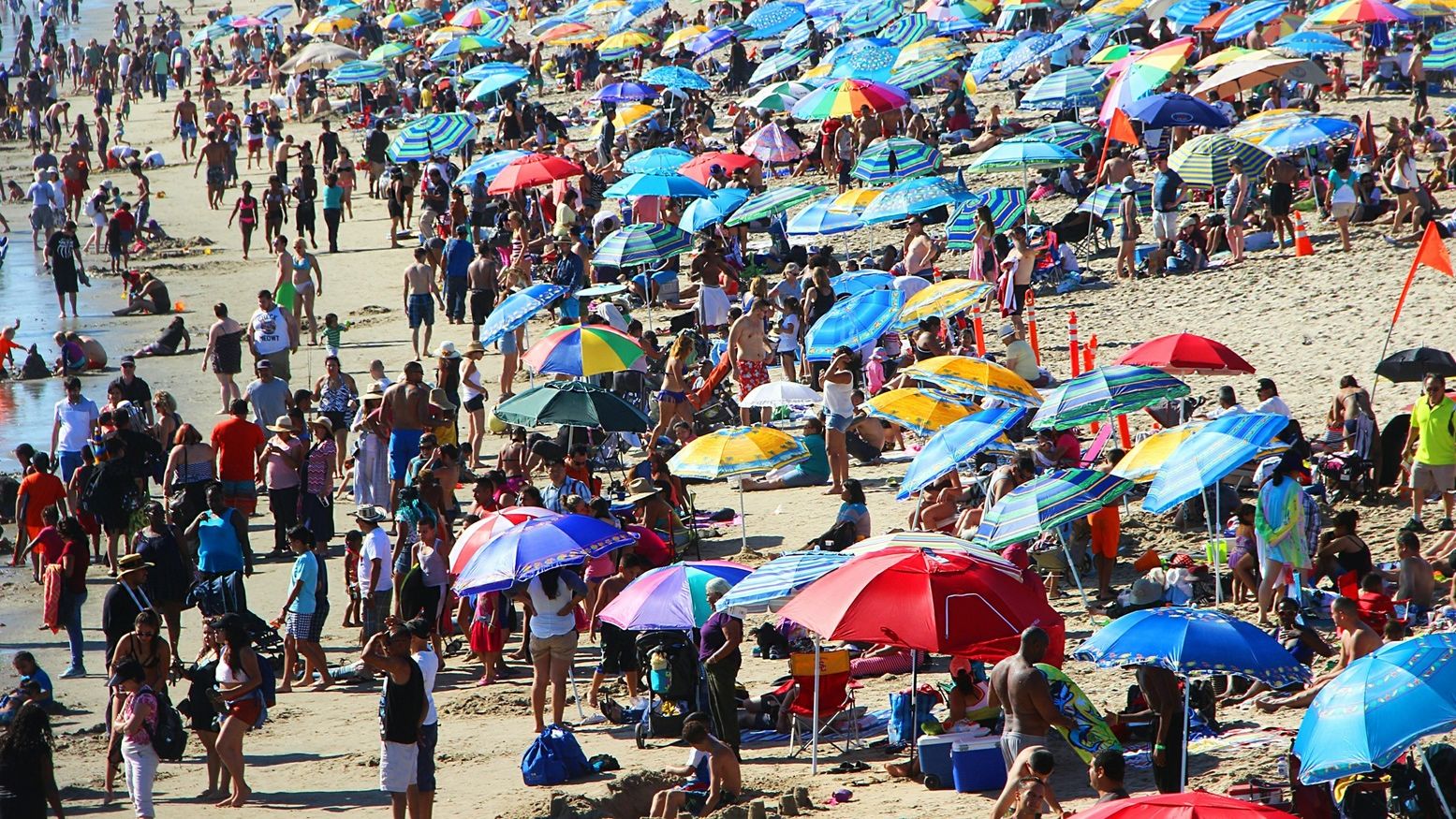What happens when tourists get angry or fearful?
A new study from Temple University faculty member Xiang (Robert) Li and alum Karen Tan, FOX ’22, examines how tourists respond when they encounter feelings of anger or fear while traveling.

Think of the last advertisement that you saw for Disney World. Was it filled with sunshine, smiles and interactive character experiences? There certainly were no photos of ride lines several hundred people deep. No images depicting guests sweating profusely while having to navigate through an overcrowded park.
“I very much enjoy all the positive emotions that come from traveling,” said Xiang (Robert) Li, a professor and Arthur F. McGonigle Senior Fellow within Temple University’s School of Sport, Tourism and Hospitality Management. “But the truth is that traveling can be a frustrating experience, and we’re seeing that even more so now after the pandemic. We would always like to associate leisure travel with fun and happiness, but that is not always the case.”
A new study co-authored by Li works to shed light on what happens to tourists when they experience anger or fear while traveling. Recently published in the April 2024 issue of the Journal of Travel Research, “When Tourists are Angry or Fearful: (In)Effectiveness of Emotion Regulation in Changing Behavioral Intention” details how tourists can manage negative emotions, specifically focusing on the emotions of anger and fear. The scholarly journal article was authored and led by Karen Tan, FOX ’22, an assistant professor at Middle Tennessee University and alum of the PhD program at Temple’s Fox School of Business.
What the study ultimately finds is that while tourists can recover from feelings of anger, it is not so simple when they encounter feelings of fear.
“One thing for sure is that when people travel, they have a high expectation for fun. They save their annual leave time for this, and they want to make sure that they have a perfect vacation,” said Li, who recently was elected as second vice president of the Travel and Tourism Research Association, which is among most influential and prestigious tourism research organizations in the world. “So, because of that, the negative emotion becomes even more acute for tourists. You feel even more upset when traveling.”

Xiang (Robert) Li, a professor and Arthur F. McGonigle Senior Fellow within Temple University’s School of Sport, Tourism and Hospitality Management, and Karen Tan, FOX ’22, an assistant professor at Middle Tennessee University and alum of the PhD program at Temple’s Fox School of Business, recently studied how tourists respond when they experience feelings of anger and fear. (Contributed photos)
For the study, Tan and Li surveyed 1,860 potential tourists across two online pre-tests and three online experiments. The participants were asked to manage their feelings regarding two different scenarios that they might encounter on vacation: overcrowding and harassment by vendors.
For both scenarios, tourists were made to feel angry or fearful. In cases where they are angry, Tan and Li find that it is possible for tourists to either suppress their feelings or reappraise them, meaning that they will decide to look at the situation in a different way.
However, it is another story when a tourist becomes scared.
“Once a tourist started to feel fearful about something, no matter how you try to help them, you can’t,” Tan said. “So, that was one interesting finding that we had. Basically, it’s easier for tourists to recover from anger. Hence practitioners (owners/operators of tourist attractions and hotels) should make sure that they never put tourists in a situation where they are scared because the tourists are not going to recover from it. They are just going to stay away from you completely.”
For context, Tan offers this scenario.
“For instance, let’s say a tourist is robbed while on vacation. Instead of facing their fears by going back to the destination, they would rather stay away, and not confront that fear,” she said. “We often try to overcome our own fears such as fear of the dark or of spiders, but it’s not like that for tourists. Tourists are not going to go back to a destination to try to overcome their fear of being robbed. They will also associate that destination with that fearful experience.”
The research builds off a previous study published by Tan and Li that also focused on negative emotions and how they relate to traveling. “To Guilt or to Vacation: Constraining Effects of Guilt on Vacation Decisions” was published in 2020 and looked at how usage of paid leave in America has been declining and how employee guilt has played a key role in that.


